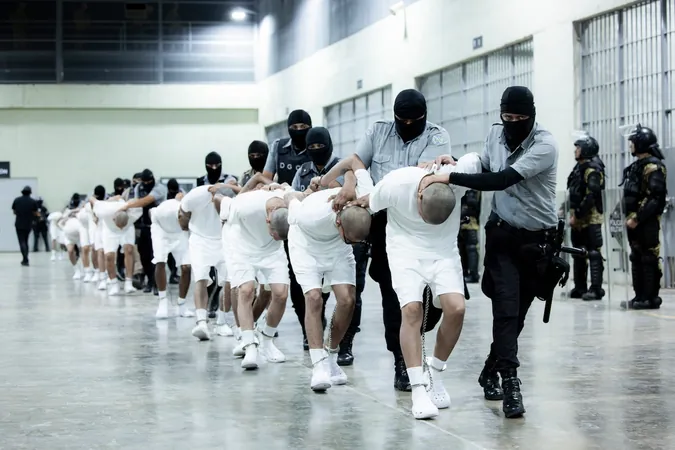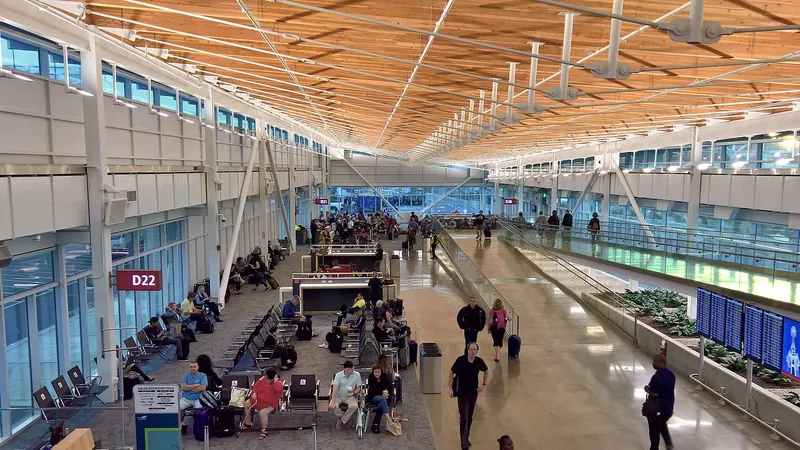
Trump Considers Controversial Plan to Deport Violent Criminals to El Salvador — Could It Happen?
2025-04-08
Author: Ting
In a surprising turn of events, President Donald Trump is contemplating the possibility of deporting violent American criminals to El Salvador, a decision that has ignited fierce debate across the nation.
The White House press secretary, Karoline Leavitt, confirmed this during a press briefing, stating that Trump has discussed the plan multiple times both publicly and privately.
Leavitt emphasized that only those classified as "heinous, violent criminals" who have repeatedly violated U.S. laws would be considered for deportation. Her remarks included a caution that the administration is unsure about the legal ramifications of such action.
"The president has said, 'if it’s legal,' right? If there is a legal pathway to do that, he’s not sure. We are not sure if there is," Leavitt noted. This indicates a significant legal challenge ahead if Trump pursues this initiative.
The context for his comments arose after El Salvador’s President Nayib Bukele expressed willingness to accept violent offenders from the U.S. While aboard Air Force One, Trump elaborated on the kinds of criminals he would consider deporting, describing them as “20-time wise guys” who pose a serious threat to American communities.
“If he would take them, I would be honored to give them,” Trump told reporters, signaling his approval of Bukele's offer.
However, the president tread carefully, acknowledging his lack of knowledge regarding the legal framework governing such a decision. "If they can house these horrible criminals for a lot less money than it costs us, I’m all for it, but I would only do according to the law,” Trump asserted.
Adding to the complexity of the issue, the U.S. Supreme Court recently ruled that Trump can utilize an 18th-century wartime law to deport Venezuelan migrants accused of gang affiliations to El Salvador, specifically targeting those linked to the notorious Terrorism Confinement Center prison.
This ruling, however, also included provisions allowing individuals accused of gang membership, such as the Tren de Aragua gang, the opportunity to contest their deportation, a move celebrated by their legal representatives as an “important victory.”
As discussions around Trump's proposed deportations continue, they raise substantial questions about the future of U.S. immigration policy, the treatment of American citizens, and the relationship between the U.S. and El Salvador.
Will this controversial strategy gain traction, or will it remain an unimplemented proposal? Only time will tell as the administration weighs its legal options amidst public scrutiny.
Stay tuned for updates on this unfolding story that could change the landscape of American justice and immigration!





 Brasil (PT)
Brasil (PT)
 Canada (EN)
Canada (EN)
 Chile (ES)
Chile (ES)
 Česko (CS)
Česko (CS)
 대한민국 (KO)
대한민국 (KO)
 España (ES)
España (ES)
 France (FR)
France (FR)
 Hong Kong (EN)
Hong Kong (EN)
 Italia (IT)
Italia (IT)
 日本 (JA)
日本 (JA)
 Magyarország (HU)
Magyarország (HU)
 Norge (NO)
Norge (NO)
 Polska (PL)
Polska (PL)
 Schweiz (DE)
Schweiz (DE)
 Singapore (EN)
Singapore (EN)
 Sverige (SV)
Sverige (SV)
 Suomi (FI)
Suomi (FI)
 Türkiye (TR)
Türkiye (TR)
 الإمارات العربية المتحدة (AR)
الإمارات العربية المتحدة (AR)